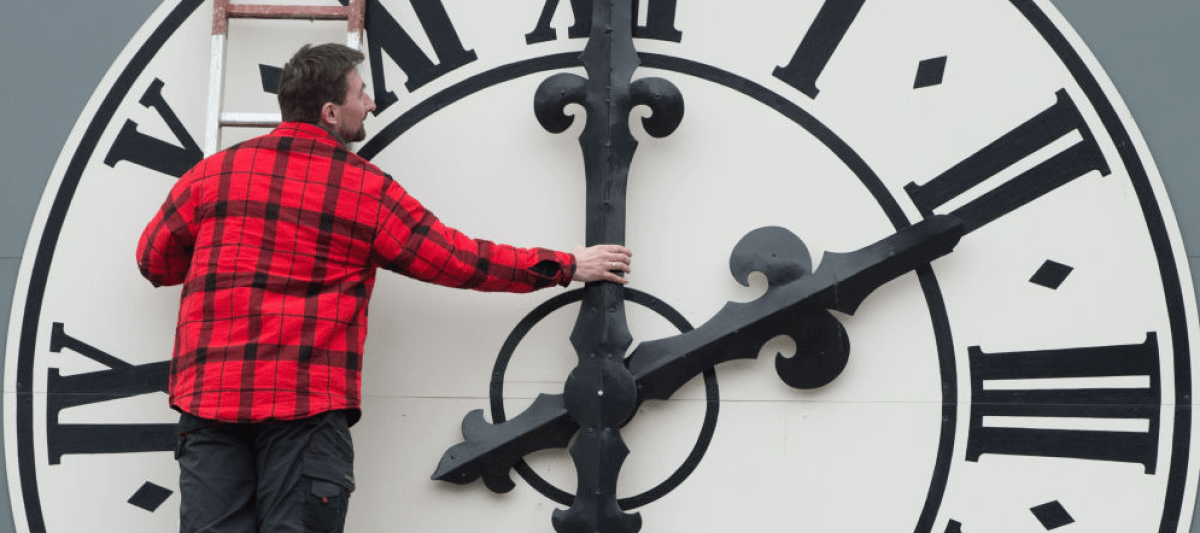On Sunday at 2 a.m., those of us who haven’t yet succumbed to a Saturday evening of libations will set our clocks forward one hour for the onset of daylight saving time.
Sure, springing forward will disrupt countless hours of sleep and lead to millions of Americans suffering alarm clock malfunctions, but the change will push sunsets later into the evening and nudge sunrises later into the morning.
So why exactly do we do it?
The short answer is to save energy. First adopted in World War I as part of an effort to save fuel (the longer you are awake in the daylight, the less fuel you’ll need for lights, heat, etc.), the practice was abandoned, adopted again during World War II and eventually became a federal government mandate in 1966.
A novel, if not somewhat irritating concept, but as Joseph Stromberg previously outlined for Vox, the change may not conserve much energy, if any at all.
“Despite the fact that daylight saving time was introduced to save fuel, there isn’t strong evidence that the current system actually reduces energy use — or that making it year-round would do so, either,” he wrote. “Studies that evaluate the energy impact of DST are mixed. It seems to reduce lighting use (and thus electricity consumption) slightly but may increase heating and AC use, as well as gas consumption. It’s probably fair to say that energy-wise, it’s a wash.”
So, given that it is annoying likely ineffective, why do we continue to do it?
Well, not all of us do.
States including Arkansas, Massachusetts, Oklahoma, and Idaho have all introduced bills that would eliminate daylight saving time and Hawaii, Arizona, and Puerto Rico already ignore it for the most part.
That practice could become even more widespread as Senator Marco Rubio of Florida re-introduced federal legislation that would make DST year-round earlier this month.
Under the Sunshine Protection Act, daylight saving time would be made permanent across the country and springing ahead after four months and falling back after eight would be eliminated.
“Studies have shown many benefits of a year-round daylight saving time, which is why Florida’s Legislature overwhelmingly voted to make it permanent last year,” Rubio said. “Reflecting the will of the State of Florida, I’m proud to reintroduce this bill to make Daylight Saving Time permanent nationally.”
Time may already be up for daylight saving time in the EU as the European Parliament’s Traffic Commission recently voted 23 to 11 to abolish daylight savings, effective 2021.
Though the Council of Member States still needs to have a final vote on the matter, it sounds like DST has a good chance of being abolished. If it is, each European member state will then have to decide whether or not to implement the change.
And, in addition to being a potential talking point for your local lawmaker, it turns out daylight savings time could be tough on your ticker and overall health as well as your temperament.
An article published last fall by the American Heart Association asked the question: “Can daylight saving time hurt the heart?” Long story short: Yes, especially “around the time when clocks ‘spring’ forward.”’
Consider: One Finnish study which looked at a decade’s worth of data found that the risk of stroke rises 8% during the first two days after DST begins. Swedish researchers found that the risk of heart attack goes up by 6.7% during the three days after DST begins.
The cause behind the increases are unknown, and many of the people who suffered a heart attack were already prone to having one.
Bottom line, it’s a time for caution and care – and not just when it comes to cardiac concerns.
A 2014 study by the University of Colorado Boulder found that fatal crashes spiked by more than 6% during the six days following the time change. Disrupted sleep was deemed a factor.
Given all of the above, even though daylight saving time happens so routinely you might not think twice about it, maybe you should.
This article was featured in the InsideHook newsletter. Sign up now.
























